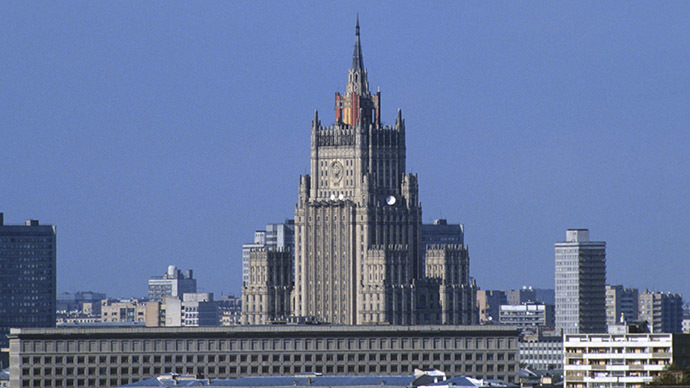The Russian Foreign Ministry has slammed the EU’s “pushy sanctions strategy” as “political blackmail,” and said it is “absolutely hopeless” as it won’t make Russia give up its “national interests and principled position.”
Coming in response to the EU’s extension of sanctions over what Brussels called “the illegal annexation of Crimea and Sevastopol,” the Russian statement said “it was time” to accept that those territories are an “integral part of the Russian Federation” and that the situation “can’t be changed by methods of economic and political blackmail.”
Sanctions against Russia are “absolutely hopeless,” the ministry said, adding that “it is a mistake to expect that [the sanctions strategy] will make us sacrifice national interests and [our] principled position on key issues.”
As the prolonged restrictions target Crimea and the city of Sevastopol, the Foreign Ministry sees the sanctions as unacceptable “discrimination” against people in Crimea “on a political and territorial basis.”
Recalling “historical examples,” the ministry condemned the move as “a collective punishment” of “the residents of the [Crimean] peninsula who made a free choice” for reunification with Russia.
“It was hard to imagine that Europe would face this in the 21st century,” the Foreign Ministry’s statement said.
READ MORE: EU prolongs economic sanctions against Crimea till June 2016
On Friday, the EU extended economic sanctions against Crimea until June 23, 2016, and said it still doesn't recognize Crimea's reunification with Russia, calling it an "illegal annexation."
The restrictions include a ban on imports from Crimea or Sevastopol into the EU, investment and tourism services, as well as the export of certain products and technology to Crimean companies.
The EU sanctions against Russia were imposed over the Ukrainian crisis. They targeted access to foreign loans and the oil and gas industry. Moscow responded with countersanctions that hit European food producers. However, the toll the conflict is taking on the EU economy is higher than Brussels initially anticipated.

READ MORE: Anti-Russian sanctions hurt Europe harder than expected; threaten 2.5mn jobs – study
According to a new study by the Austrian Institute of Economic Research (WIFO), the EU sanctions and Moscow's retaliation could cost Europeans 100 billion euros in economic development and jeopardize up to 2 1/2 million jobs.
Crimea joined Russia in March 2014 following a referendum where 96 percent of people voted in favor of reunification. The decision to hold a referendum was sparked by the Maidan protests and then the refusal of the peninsula to recognize the new Kiev authorities.

